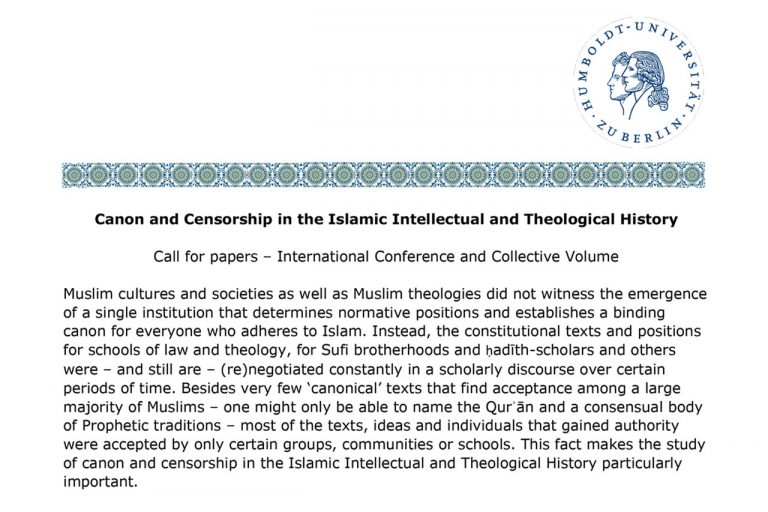Canon and Censorship in the Islamic Intellectual and Theological History

About The Event
Call for Papers
Date: October 8–10, 2021
Venue: Berlin, Germany
Abstract Submission Deadline: January 15, 2021
The conference welcomes papers that focuses on certain texts, ideas or individuals that were perceived by Muslim communities as canon, authorities, or constitutional ideas and texts. In order to reach broad conclusions from the various papers, we encourage case studies that cover a wide range of disciplines (Sufism, Islamic law, Islamic theology, Islamic Philosophy, hadith-studies etc.) as well as focus on texts, ideas and individuals from different regions and time periods ranging from early Islamic history to modern times.
It is particularly important to highlight the plurality of Islamic intellectual and theological thought by focusing on different schools of thoughts (e.g. Sunni, Shii, Zaydi schools of thoughts and others).
The following research questions shall guide the contributions: What do the concepts of ‘canon’ and ‘censorship’ mean in the context of the case study? How did the canon become authoritative? How were contradicting ideas suppressed or censored? What stages did a text or an idea pass through with regard to the reception history to become a canonical text or a constitutional idea? What scholarly community stood behind this development who has fostered and supported a certain text or idea? What other historical, social or political factors favored the dominance of certain texts, ideas or individuals over others?
For more information, please contact Iman Zayat at iman.zayat@hu-berlin.de.
Location
Berliner Institut für Islamische Theologie


We're always eager to hear from you.
If you’d like to learn more about us or have a general comments and suggestions about the site, email us at